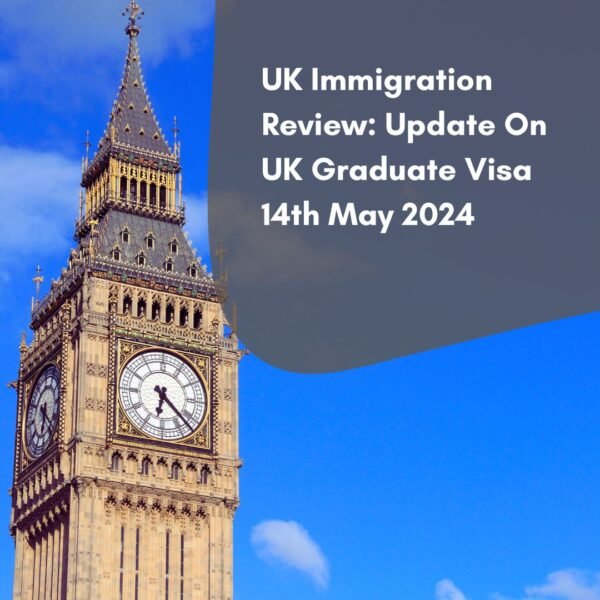MAC Concludes Rapid Review, Advises Retention of Graduate Route. The graduate route visa offered to international students will continue in its current form, the UK’s Migration Advisory Committee noted in its review report on Tuesday.

The UK’s Migration Advisory Committee (MAC) has concluded its rapid review of the Graduate Route, indicating that the immigration stream remains crucial for international students seeking work opportunities post-study. The MAC’s Chair, Professor Brian Bell, conveyed in a letter to the Home Secretary that no evidence of widespread abuse has been found on the route, recommending its continuation in its current form.
In a letter dated 14 May 2024 to the Home Secretary, Professor Brian Bell, Chair, of the Migration Advisory Committee:
“We have not found evidence of widespread abuse on the Graduate route, where we define abuse as deliberate non-compliance with immigration rules, and we conclude that the route is not undermining the integrity and quality of the UK higher education system …. We recommend retaining the Graduate route in its current form.”
The visa category will continue in its current form, the MAC report has noted.
Highlights of the Letter:
Potential Overcorrection Warned
MAC highlighted concerns over potential overcorrection, citing the recent termination of student dependants’ rights to accompany international students to the UK as a significant factor already impacting migration levels. They caution against additional restrictions, emphasizing the financial contribution of international student fees to universities and advising structural funding issues to be addressed first.
Transparency and Accountability in Recruitment Advocated
The MAC also flagged issues with certain recruitment agents mis-selling UK higher education and exploiting students. Recommendations include establishing a mandatory registration system for agents and requiring universities to disclose data on agent spending and student recruitment annually.
Evidence-Based Policy Urged
Emphasizing the importance of grounded policies, MAC called for a clear plan for data collection and monitoring to assess migration routes’ effectiveness and wider impacts. They advised a review of data variables to ensure accuracy and relevance in decision-making.
Sector Reactions Echo Support for Graduate Route
University leaders Vivienne Stern, Chief Executive of Universities UK, and Dr Tim Bradshaw, Chief Executive of the Russell Group welcomed MAC’s recommendations, emphasizing the route’s importance for the sector’s stability and financial sustainability. They urged the government to provide reassurance and stability for both universities and international students.
Political Criticism and Concerns
Former immigration minister Robert Jenrick reviewed conclusions and criticized the review, accusing it of bias and whitewashing, with concerns raised about arbitrary migration targets and the expansion of universities. However, higher education stakeholders await the government’s response to the report.
“The MAC’s conclusions have clearly been constrained by the narrow terms of reference deliberately set by the government … if you order white paint, you get a whitewash.”
“Another Conservative MP said backbenchers were ‘piling pressure’ on Rishi Sunak to ignore the committee’s conclusions,” and that as relieved as university chancellors are about the findings of the review, “higher education leaders said they still feared No 10 could cherrypick elements of the report to justify a further crackdown.”
Warning Against Further Restrictions
MAC warned of dire consequences if the Graduate Route is overhauled, predicting failure to achieve international education strategy targets and significant financial difficulties for universities, potentially leading to job losses and course closures.
Graduate Route Vital for UK’s Education Sector
In conclusion, MAC’s review underscores the vital role of the Graduate Route in sustaining UK universities and attracting international talent. The recommendations advocate for transparency, evidence-based policy-making, and stability in the immigration framework, emphasizing the need to balance migration control with the sector’s financial viability and global competitiveness.

